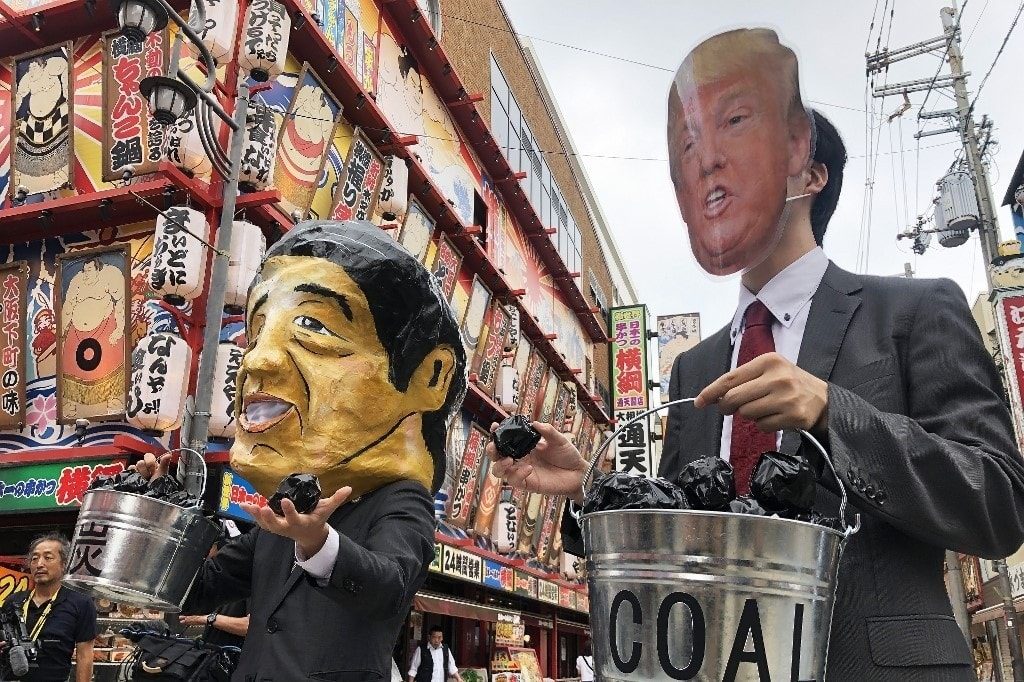Osaka: After much wrangling, the Group of 20 major economies Saturday agreed to disagree on fighting climate change, with the United States dissenting from a commitment to carry out the 2015 Paris climate change agreement.
According to an ongoing temperature analysis conducted by scientists at NASA’s GISS, the average global temperature on Earth has increased by about 0.8° Celsius since 1880. Two-thirds of the warming has occurred since 1975, at a rate of roughly 0.15-0.20°C per decade
However, United Kingdom’s Prime Minister Theresa May called on other countries to “raise their ambition” and copy the UK by aiming for net zero carbon emissions by 2050. The Prime Minister said she wanted other world leaders to “embrace this target” as she held a news conference at her last G20 summit.
In a communique at the end of a two-day summit in Japan’s western city of Osaka, the grouping said “signatories to the Paris Agreement” reaffirmed their commitment to its full implementation, referring to the 19 members aside from the US.
The United States withdrew from the Paris pact because it “disadvantages American workers and taxpayers,” the grouping added in a subsequent section, adopting a two-part approach used at last year’s summit in Buenos Aires.
The division reflects tussles over global warming that have repeatedly stymied international forums since US President Donald Trump pulled the United States out of the landmark accord to limit the effects of climate change.
Even before the summit started, the differences over climate change became apparent when President Emmanuel Macron said France would not accept a final text that omitted the Paris pact.
In that accord, 200 nations agreed to limit the global average rise from pre-industrial temperatures to below 2 degrees C. Current policies put the world on track for a rise of at least 3 degrees C by the end of the century, the United Nations said in a 2016 report, however.
G20 officials said the negotiations to secure acceptable language on climate change were contentious.

